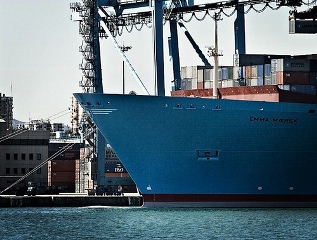 Liner shipping is becoming less and less reliable as operators ignore service standards in the rush to cut costs—and the situation is only going to get worse, according to Drewry’s newly published “Carrier Performance Insight” report.
Liner shipping is becoming less and less reliable as operators ignore service standards in the rush to cut costs—and the situation is only going to get worse, according to Drewry’s newly published “Carrier Performance Insight” report.
Container ship reliability worsened in every quarter of 2013, with the fourth-quarter decline taking the on-time average below 64 percent, the lowest it has been for two years. Compared to the same quarter in 2012 when the all-trades average reached a peak of 75.2 percent, the fourth quarter result was down by a hugely disappointing 11.4 points.
The weaker performance coincided with a raft of skipped voyages. With more planned for the first couple of months of 2014, the short-term outlook for reliability is not great.
“The focus on reliability seems to have been lost in the current cost-cutting environment. Shippers are now paying more for poorer services,” said Simon Heaney, senior manager of supply chain research at Drewry.
“Shippers know that lines are saving money, so they will be unwilling to accept further rate increases. This could provide an opportunity for more reliable carriers to secure better rates.”
Maersk Line maintained its position as the most reliable major carrier in the industry in a generally poor fourth quarter when most of its competitors suffered a free-fall in on-time ship arrivals.
Maersk achieved 80 percent on-time reliability in the fourth quarter, improving its all-trade reliability by 0.8 points. It was one of only eight carriers to improve on their third-quarter performance. A three-point improvement was enough to see Evergreen Line rise from 11th to second place with a 74 percent on-time result. Despite a four-point decline, Yangming Marine ranked third with an on-time average of 73 percent.
On the other hand, the worst performing carriers were Mediterranean Shipping Co. with 48 percent reliability rating and Compañía Sud Americana de Vapores with 51 percent.
Liner analyst SeaIntel also noted a decline in global carriers’ schedule reliability, down 1.1 percentage points from 80.6 percent in 2012 to 79.5 percent in 2013. The drop was due in part to the lower performance on the main east-west trade lanes, except for the trans-Pacific eastbound route.
Maersk Line, Hamburg Süd, and APL were the most reliable carriers in both 2012 and 2013 despite a decline in performance, said SeaIntel.




